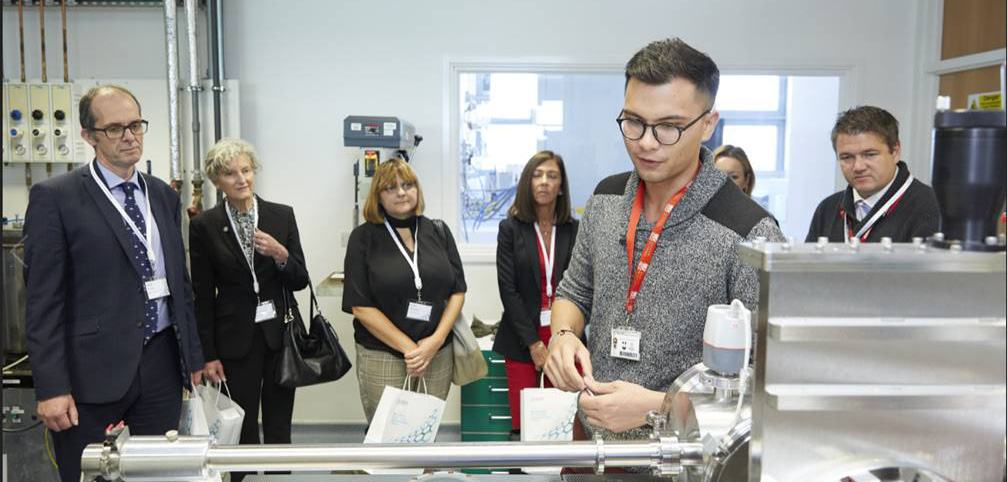A £4.1m (US$5.3m) research facility focused on fuel cell development has opened at Manchester Metropolitan University in the UK.
Researchers at the Manchester Fuel Cell Innovation Centre (MFCIC) will work together with other industry experts from small and medium-sized enterprises (SMEs) across Greater Manchester, training them in this new technology so they can discover and utilize its commercial and environmental benefits.
Supporting their work, the facility is outfitted with £2.5m (US$3.2m) of specialist equipment.
Professor Malcolm Press, vice chancellor of Manchester Metropolitan University, said, “The Manchester Fuel Cell Innovation Centre will be a regional hub for research innovation and economic growth in the fuel cell technology sector. This is crucial both environmentally and economically for the region, as the UK focuses on increasing its use of renewable energy and lowering emissions.
“I am delighted that we will be making our expertise and distinctive capabilities in fuel cell technology available to industry, business and policymakers across Greater Manchester, transforming how we all power our homes, workplaces and vehicles.”
Amer Gaffar, director of partnerships at the Manchester Fuel Cell Innovation Centre, commented, “There is currently huge investment in hydrogen and fuel cell technology, both nationally and globally, and this will continue to grow.
“Our collaborations with SMEs will open up the vast market opportunities that fuel cells can bring to Greater Manchester business and industry – ensuring that this green technology is adopted across the region.
“We are also excited about engaging with the public, educating people about the importance of producing sustainable energy and how hydrogen power can benefit all of us.”
MFCIC will produce advanced materials for fuel cells and next-generation energy storage, utilizing nanomaterials and 3D printing for example. It will also look at implementing hydrogen and fuel cell infrastructure in the region.
Over the coming months, MFCIC researchers will run workshops to show SMEs how they can improve efficiency and open up new market opportunities by adopting hydrogen and fuel cell technology.
MFCIC researchers will also educate the next generation about hydrogen power and the importance of ensuring an environmentally sustainable future by visiting Greater Manchester schools through the HySchools project.
The MFCIC will create teaching materials, and practical lab investigations that can be shared across the platforms that schools use to teach the curriculum.
The center has been partly funded with £1.6m (US$2.1m) from the European Regional Development Fund, with the University providing the rest of the funds.


